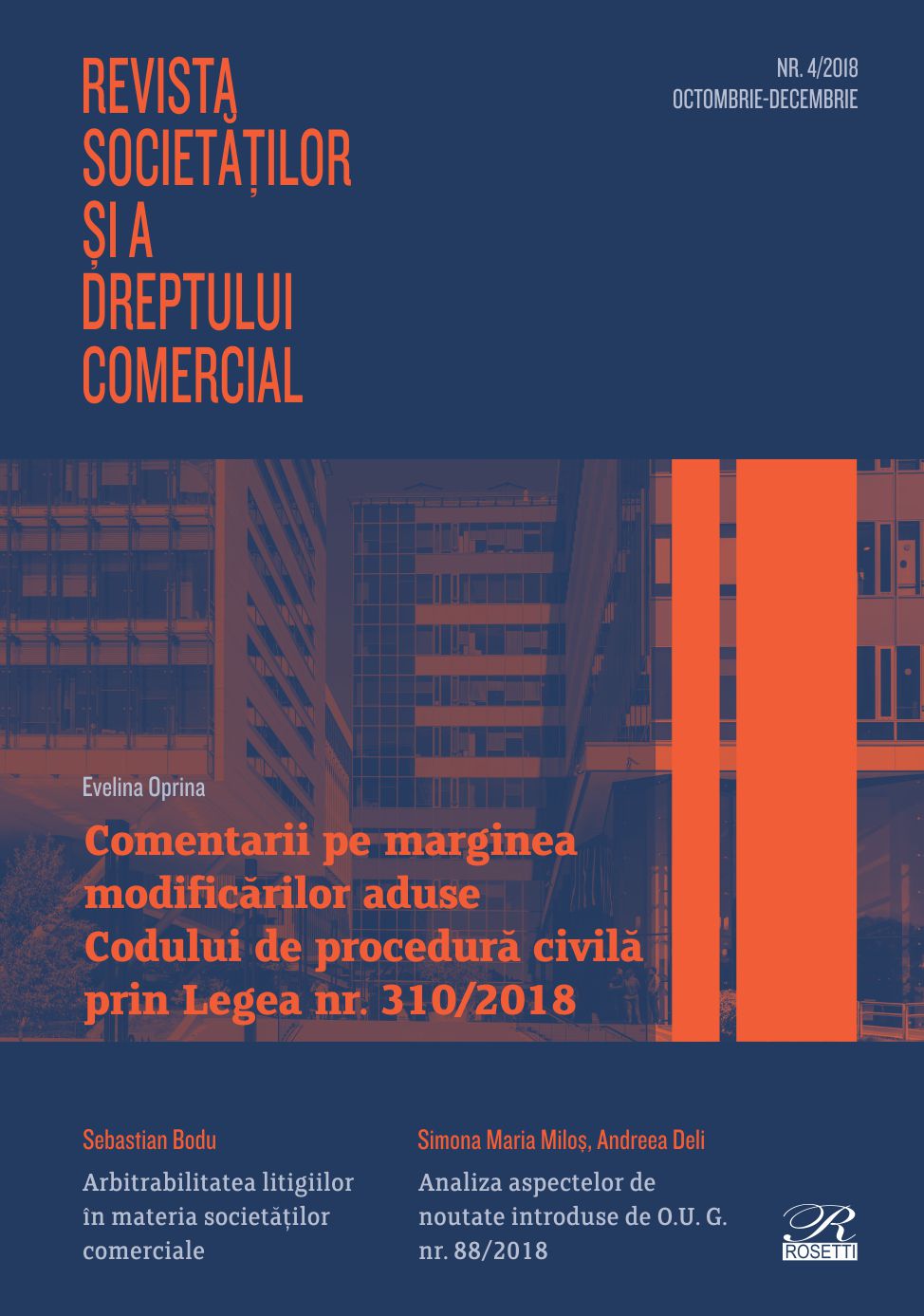Obligaţiile administratorilor faţă de societatea comercială.
Regula deciziei de afaceri
Directors’ duties towards the company. Business judgement rule
Author(s): Sebastian BoduSubject(s): Law, Constitution, Jurisprudence, Court case
Published by: Editura Rosetti International
Keywords: Loyalty; bona fide; prudence; diligence; discretion; company’s interest; proper purpose; business judgement rule; careful and prudent man standard;
Summary/Abstract: Rezumat: Membrii organelor de administrare ale societăţilor comerciale sunt supuşi unor obligaţii specifice celor care administrează patrimoniul altuia. O primă obligaţie este cea de loialitate şi urmărire a interesului social, iar o a doua obligaţie este cea de prudenţă şi diligenţă. Societatea administrată se poate îndrepta împotriva lor cu o acţiune în daune dacă încalcă una din aceste două obligaţii, care sunt alternative. Dacă a fost încălcată obligaţia de loialitate, atunci societatea trebuie să probeze reaua-credinţă, adică să arate interesul contrar societăţii (de exemplu, personal) urmărit de administratori. Dacă a fost încălcată obligaţia de prudenţă sau diligenţă, înseamnă că nu buna lor credinţă este pusă în discuţie, ci imprudenţa sau nediligenţa În acest din urmă caz, societatea trebuie să probeze că administratorul nu a fost suficient de prudent sau de diligent, adică decizia lui nu a fost una de afaceri. Criteriul după care se analizează prudenţa şi diligenţa este cel al bunului administrator. Atât buna-credinţă, cât şi regula deciziei de afaceri sunt prezumţii relative care apără administratorii de răspundere. În ambele cazuri, sarcina probei, deci de răsturnare a prezumţiilor, revine societăţii reclamante. Abstract: Members of company management bodies are subject to specific obligations to those who administer the assets of others. A first duty is loyalty and pursuit of company’s interest, and a second obligation is prudence and diligence. The managed company may bring a law suit against them in damages if they violate one of these two obligations, which are alternatives. If the loyalty obligation has been violated, then company must prove bad faith, i.e. show the interest contrary to the company (for example, personal interest) pursued by the directors. If the obligation of prudence or diligence has been breached, it means that their bona fide is not questioned, but imprudence or negligence. In the latter case, the company must prove that the director was not prudent or diligent enough, that is, his decision it was not a business one. The standard of prudence and diligence is that of the careful and prudent director. Both bona fide and the business judgement rule are relative presumptions that protect liable directors. In both cases, the burden of proof, and thus of overturning presumptions, lies with the applicant company.
Journal: Revista Societăților și a Dreptului Comercial
- Issue Year: 2018
- Issue No: 2
- Page Range: 1-21
- Page Count: 21
- Language: Romanian
- Content File-PDF

